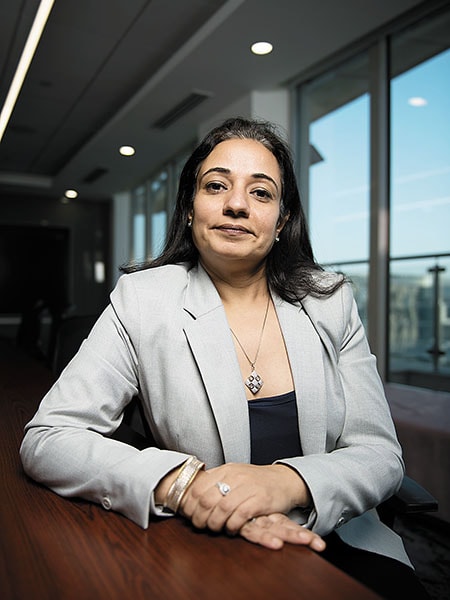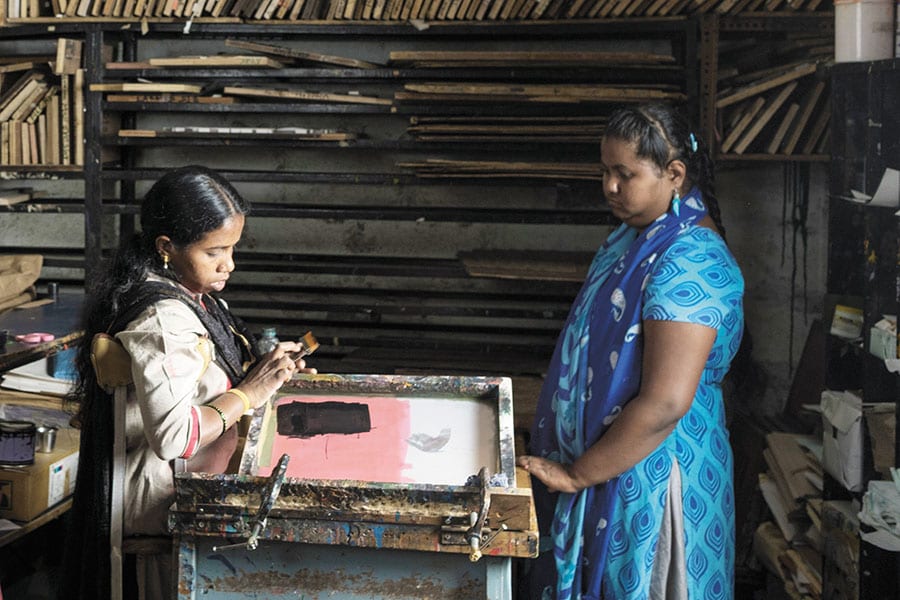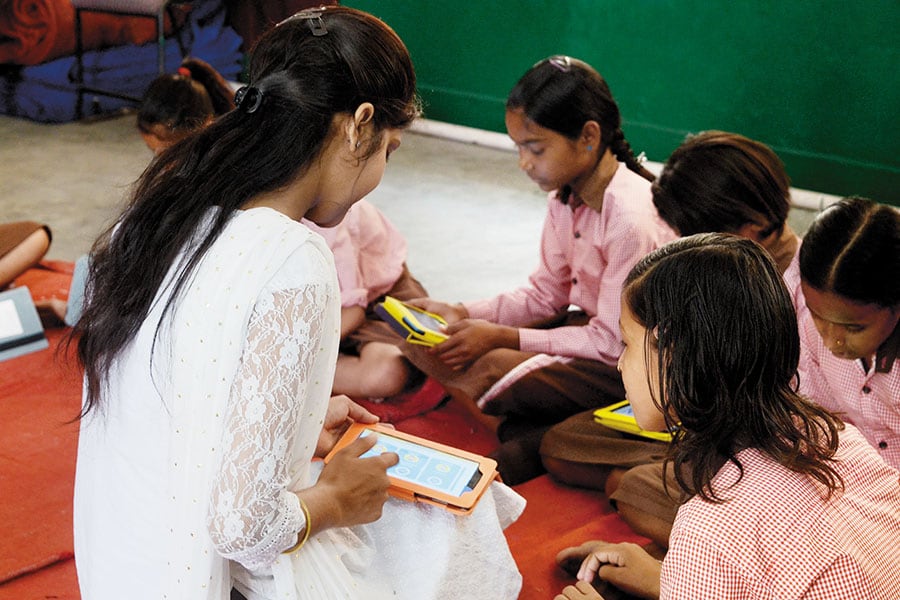How Covid-19 will affect impact investing in India
Geeta Goel, country director, India, of the Michael & Susan Dell Foundation, talks about the need for responsible capitalism


 Geeta Goel started impact investing so that the market starts serving low-income groups
Geeta Goel started impact investing so that the market starts serving low-income groups
Image: Amit Verma[br]Q. What are the main areas in which the Michael & Susan Dell Foundation (MSDF) works?
The foundation is, of course, a philanthropic foundation, it is not a fund structure. We started using impact investing as a tool primarily because we felt we could use this capital to catalyse a market shift, so that the market starts serving the needs of the low-income category, creating quality products, and a sustainable impact in society. For us, impact investing started with the objective of asking how we can achieve our mission faster so that it impacts the lives of children and addresses urban poverty.
In India, we work in three areas: Education, livelihoods and financial inclusion. All of these are focussed on the urban low-income group. For education, we have a vision of how to improve learning levels, or fill learning level gaps. For livelihoods, we look at how to create more aspirational job opportunities, and in financial inclusion, we look at how the low-income group can access similar kind of banking services—whether it is savings, credit or insurance—as you and I do.
Globally, we work in three countries—the US, India and South Africa. The mission of the foundation is the same, in terms of impacting children. In the US, we focus on education—K-12 levels, as well as higher and college education. We run a strong scholarship programme for college completion. We also work in the heath sector, centred around healthy living. A large part of our impact investing in the US has been in the area of education. In South Africa, our key focus areas have been education and livelihoods. We just impact-invested in South Africa, in the area of livelihoods.
Q. How does the fact that MSDF is a foundation and not a fund affect its impact investing?
One unique feature about the MSDF, which regular funds are not able to have, is the flexibility in capital that the foundation’s structure allows us to have. We are not creating a portfolio of investments that cobble up together as a fund, but we are actually taking a sectoral view and defining the key objectives that we want in each sector. And then we make grants or investments to achieve these objectives.
So if that means working with the government, we do that, or working with not-for-profits, we do that, or working with for-profits to push them into a certain area or to create more impact, we do that. We do want our impact investments to be sustainable, to be large-scale, and they should deliver a financial return. But we are always cognisant of the social returns.
Because of the flexibility we have, we also use blended capital. We can have impact-linked financing structure, we can have safer success structures, which have shown positive results in the last few years. Offline vocational and skill training will be replaced by quality and low-cost online solutions, Goel believes
Offline vocational and skill training will be replaced by quality and low-cost online solutions, Goel believes
Image: Nishant Ratnakar[br]Q. What are examples of these flexible funding structures, and the impact they have on the organisation that you are funding?
We do vanilla equity and vanilla debt. While an equity is given to strengthen an organisation, and helping it achieve some goals, most of our debt products have been carved out for specific impact areas. So, for instance, we have given debt to a microfinance institution (MFI) to create a new MSME portfolio, or to MFIs to create loans for toilets as a fixed product.
We have also given impact-linked debt, for example to Varthana, which does financing to affordable private schools, and we varied the interest rates based on the impact in schools. If the school was able to deliver a 10 percent increase in the learning level of a student, it got an interest rebate. The idea being that it then starts catalysing a market that recognises quality in schools.
Last year we gave a loan to Eduvanz, which is a skill financing NBFC to allow it to give loans to a population which is below their credit threshold. They created an experimental tool for those who have less than ₹25,000 monthly income. When they enrol in any high-quality educational course, Eduvanz gives them a loan, which they can repay when the students gets a job.
We also have development impact loans that usually pay for outputs, for projects that are successful and delivering returns.
 The health care sector, one of MSDF’s focus areas for impact investing, is getting a push during the pandemic
The health care sector, one of MSDF’s focus areas for impact investing, is getting a push during the pandemic
Image: Satyabrata Tripathy / Hindustan Times via Getty Images
Q. In the wake of this pandemic, would the MSDF look to modify its approach to impact investing in India?
In India, we are working in three areas. The first area is ‘Road to Recovery’, which is primarily for the informal sector, where workers have been impacted the most. One effort is for informal sector gig workers, for which we partnered with Shubh Loans and Samhita Social Ventures in the second effort we partnered with Northern Arc Capital to create an MSME liquidity fund to ensure the flow of credit to this sector the third aspect was enabling direct benefit transfers or cash transfers through the Give India platform.
The second area is ‘Ghar Pe School’ or ‘learning at home’. With Covid-19 lockdowns, three state governments—Haryana, Himachal Pradesh and Rajasthan—were keen to start WhatsApp-based education for continued learning for students who were restricted to their homes. In these states, more than 90 percent of teachers are active on WhatsApp groups, many parents are on it. Each day, students receive a timetable and some resource material. Our investees, such as Avanti Learning Centres, Classklap or ConveGenius, who were originally doing more blended models of learnings, pivoted to pure online models overnight. They are seeing significant traction. For instance, Avanti runs a free app for maths and science for government schools and saw traction of about a million views, and almost 16 to 20 percent of their views are on feature phones. It does help us believe that ed-tech is not restricted to smartphones.
The third area is collaborations or support given to health care, and how tech solutions can support to prevent, track, trace and test solutions in the Covid-19 pandemic.  Investees of the foundation are exploring pure online models of learning in the wake of the pandemic, and are seeing significant traction in government schools
Investees of the foundation are exploring pure online models of learning in the wake of the pandemic, and are seeing significant traction in government schools
Image: Convegenius Team[br] Q. Does the pandemic influence how you see investment sectors?
From an impact investing perspective, we should split investments into a few sectors. So there are a few sectors that have benefited during the pandemic, such as health care and online schooling. These sectors are getting a push and more investments. It’s almost like what demonetisation did for [digital] payments. Similarly, tech will now start playing a significant role because it makes things accessible at a certain quality and affordable cost, which are much more important for low-income people rather than high-income ones, since the latter can always afford high-quality products.
Certain sectors have gotten fairly adversely impacted, such as financial services. The whole NBFC liquidity crisis, for instance, has made everybody cautious. Therefore, the MSME space might see losses and loan right-offs.
I would put the livelihood and skill training space being in the middle, because it pushes a lot of our offline training to go online. It will bring in a level of quality and low-cost solutions, which is good. Placements remain a challenge, because sectors like health and logistics will see more demand, but several other sectors will be more difficult.
Q. What effect will the pandemic have on impact investing in general?
On the one hand, I see that a lot of mainstream investing will become more responsible and more impact-driven. We had already seen the trend for this, for instance KKR setting up an impact fund. These are not concessional returns, but funds choosing to work in certain areas because they want to have returns as well as have an impact.
Some owners of capital might do it out of goodwill, but over a period of time, some codes might get written, similar to the CSR (corporate social responsibility) norms. I do see the responsible side of capitalism coming to the fore, it may happen out of goodwill for a few, but as a sector it might need a mandate. But that’s a good thing, because more capital means more growth.
Traditional impact investors will continue to catalyse more opportunities in more geographies maybe more resources will go towards health care, or addressing inequities (which is a fallout of the pandemic).
One other thing that the pandemic has taught the entire world is the adoption of technology. Getting access to your customers becomes so much easier and lower-cost than when you have to deliver things physically. A low-income customer being serviced at a low-cost is much more important than a high-income customer being serviced at a higher cost.
First Published: Aug 03, 2020, 11:54
Subscribe Now